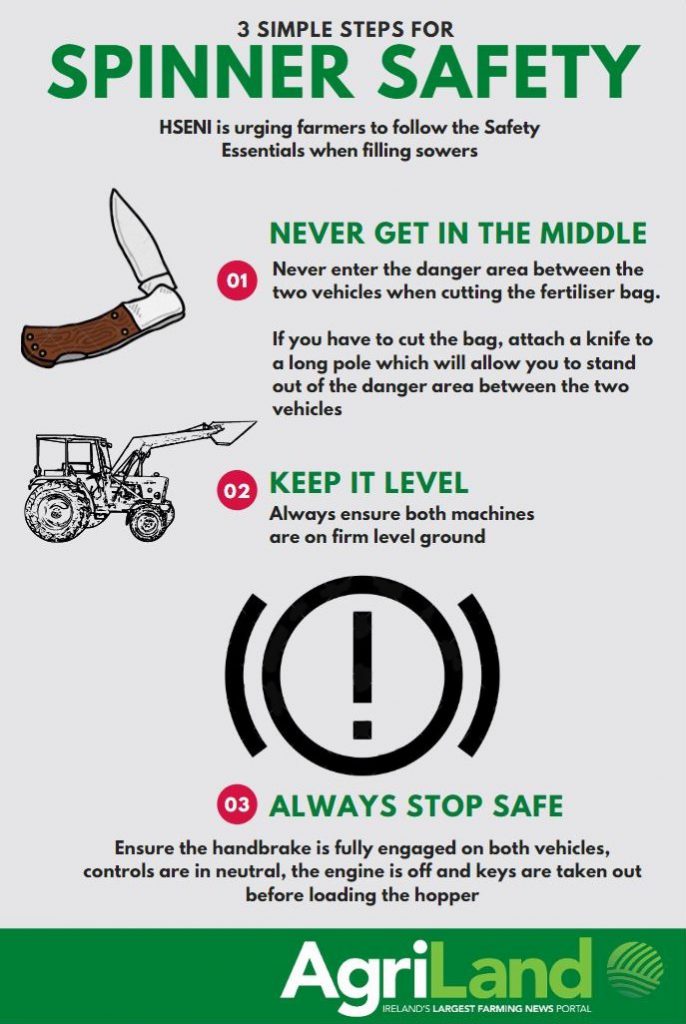Northern Ireland’s Health and Safety Executive (HSENI) is to take a simpler and snappier approach to its farm safety campaign.
The series will focus on key actions which every farmer should take to protect themselves and others from the situations which have tragically led to death and serious injury.
The new ‘Farm Safe Essentials’ messages will drill-down on the four single most deadly factors on-farm:
- Machinery maintenance;
- Slurry;
- Falls; and
- Livestock accidents – especially involving freshly-calved cows.
Succinct slogans such as ‘No brakes; no chance‘ will be released every few weeks.
The first highlights the danger of older tractors. Maintenance of machinery is a serious issue in Northern Ireland – specifically with regards to brakes.
Camilla Mackey, HSENI principal inspector, explained many farmers put off essential repairs and maintenance, often because of their cost or because they are too busy on the farm, not realising the potentially deadly consequences.
As a result, routine jobs, like filling a fertiliser sower, turn into potentially deadly operations.
Both farmers were crushed after the weight of the fertiliser coming down caused the machine to slide into them.
“Without adequate brakes,” Mackey explained, “you really have no chance.”
“All farm machinery presents many dangers if you do not keep them in a good condition, and while they allow farmers to work quicker and more efficiently, safety is critical when carrying out maintenance, particularly in relation to vehicle brakes,” Mackey added.
“Where faults do arise, especially in relation to brakes and braking systems in vehicles, farmers must make sure the person that is carrying out the repairs is competent to do so.”
Other advice from the HSENI includes:
- Avoid the need to work in hazardous areas – if possible get the fertiliser delivered loose and load from a bucket or scoop directly into the hopper;
- Ensure all machinery and equipment is maintained in good working order by a competent person;
- Never use a vehicle with defective brakes;
- Where possible have two people carry out this task;
- Ensure all implements are attached correctly and securely to the forks of the loading vehicle;
- Never reuse bags unless specifically designed for multiple lifts;
- It is also advisable to have stop blocks or wheel chocks on stationary vehicles.

